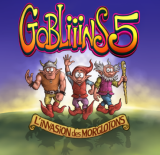Review for The Tartarus Key
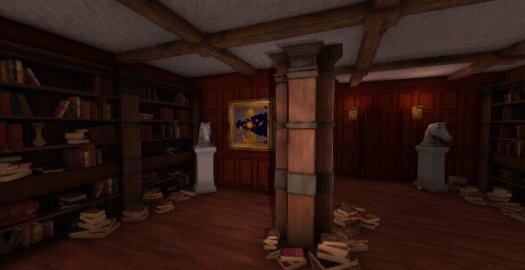
Alex Young, our protagonist, awakens in an unfamiliar room. Rising from the plush red couch she’s found herself on, she takes in her surroundings. She’s in some sort of study, dimly lit and dotted with books and shelves filled with various trinkets. Cameras follow her every move, and a door — the only exit — is locked tight. She finds a walkie-talkie — or “short-range radio,” to be exact — that gives her a clue as to what is happening to her.
On the other end of the line is an ex-detective named Torres, who seems to be stuck in a similar predicament. Torres encourages Alex to explore her surroundings and use whatever is at her disposal to get out of the room. Alex does just that, finding postcards scattered around that aid in her escape. Finally, she’s out, only to discover that the room is part of a large mansion enveloped in mystery, and she and Torres have just scratched the surface of its sinister trappings.
This is the premise of The Tartarus Key, Vertical Reach’s indie tribute to low-poly PS1 classics like the original Resident Evil and Clock Tower. Take the look of those games and apply Alone in the Dark-esque puzzles, and you have The Tartarus Key in a nutshell, but that still doesn’t do it quite justice. While it has the DNA of those classics coursing through its veins, its spirit is all its own. As Alex, you’re exploring a spooky mansion and solving Saw-like puzzles, but accompanying your adventure through this house of tricks is a unique atmosphere and captivating writing that make for one of my favorite gaming experiences this year.
Let’s talk about the atmosphere first. The mansion is beautifully rendered, with demonic summoning circles, flickering candles, and ornate decor. Enhancing the experience is a backdrop of sound, including ominous creaks and rumbles, but best of all is Josie Brechner’s low-fi soundtrack, with a tinkly piano and satisfying percussion that trickles in like all of my favorite save room themes wrapped up into one. I enjoyed the music so much that I would often just stand in one spot, savoring it. That being said, there isn’t much sense of dread while exploring the mansion. No zombies are waiting around corners, and nothing terribly exciting happens — until you stumble upon another person.
That’s right — as you move around the mansion, you encounter more characters, all of whom are trapped in their own personal hell, and Alex is there to help them through it. Encountering these characters brings a level of much-needed tension to the game and brings to light one of my favorite aspects of The Tartarus Key: the dialogue. There’s no voice acting, but each character’s written dialogue serves their personality well, and the way they all interact with each other is not only entertaining but often believable. I found myself relating to Alex in particular as she narrated her thoughts and I learned more about her background through her conversations.
Early on, you establish a central hub in the mansion’s sitting room, a cozy space complete with a crackling fire. Torres takes up residence here, acting as Alfred to Alex’s Batman. As you meet more characters, the hub begins to fill up with them — that is, unless you let them die. Bringing together this little found family is one of the more distinctive aspects of the game, and each character is fleshed out and interesting in their own way. Although you can lose them if you’re not careful with their trap puzzles, it’s fairly easy to go back and try again, as the game gives you the ability to save at any time.
The Tartarus Key’s horror is like snaking tendrils winding their way into your consciousness rather than anything overt. As stated before, there’s no combat and no need to evade any stalker-like presence. Instead, the gameplay presents itself through puzzles. Each new room has a puzzle of its own, the solution of which is usually contained within that same room. For the most part, the difficulty level hits the mark. I did find a certain series of puzzles so simple that I overthought them, but overall the puzzles are stimulating but not taxing. Collecting the different pieces lying around each room, and seeing how they all fit together, is satisfying enough to keep you going. My favorite puzzle involved constellations in a planetarium, an unexpected but welcome sight in the ever-surprising mansion.
As Alex delves deeper into her captor’s domain, she discovers more than she could have bargained for, uncovering the dark conspiracy that keeps her trapped throughout the night. The Tartarus Key is a game that’s best left for the player to discover, keeping its most impressive tricks up its proverbial sleeve. But I can't recommend it enough if you’re looking for a good throwback to the PS1 era or an oddly cozy horror game to curl up with on a rainy Saturday. I had a great time puzzling my way through it, and I was left with a sense of nostalgia and atmospheric warm fuzzies that only the best horror games can provide.
Our Verdict:
Vertical Reach’s foray into horror is a successful merging of PS1-era classics and its own unique DNA, with engaging puzzles and a lovely cast of characters.









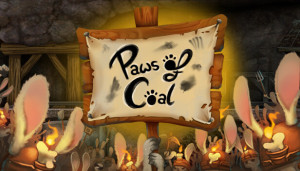




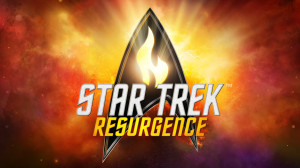



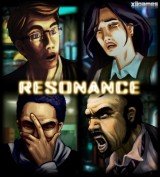

__small.jpg)

